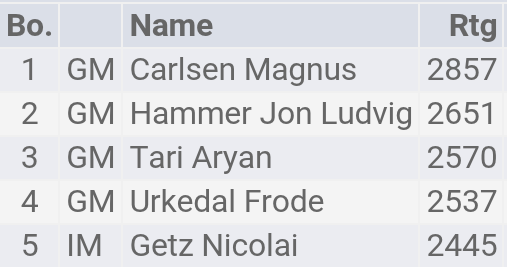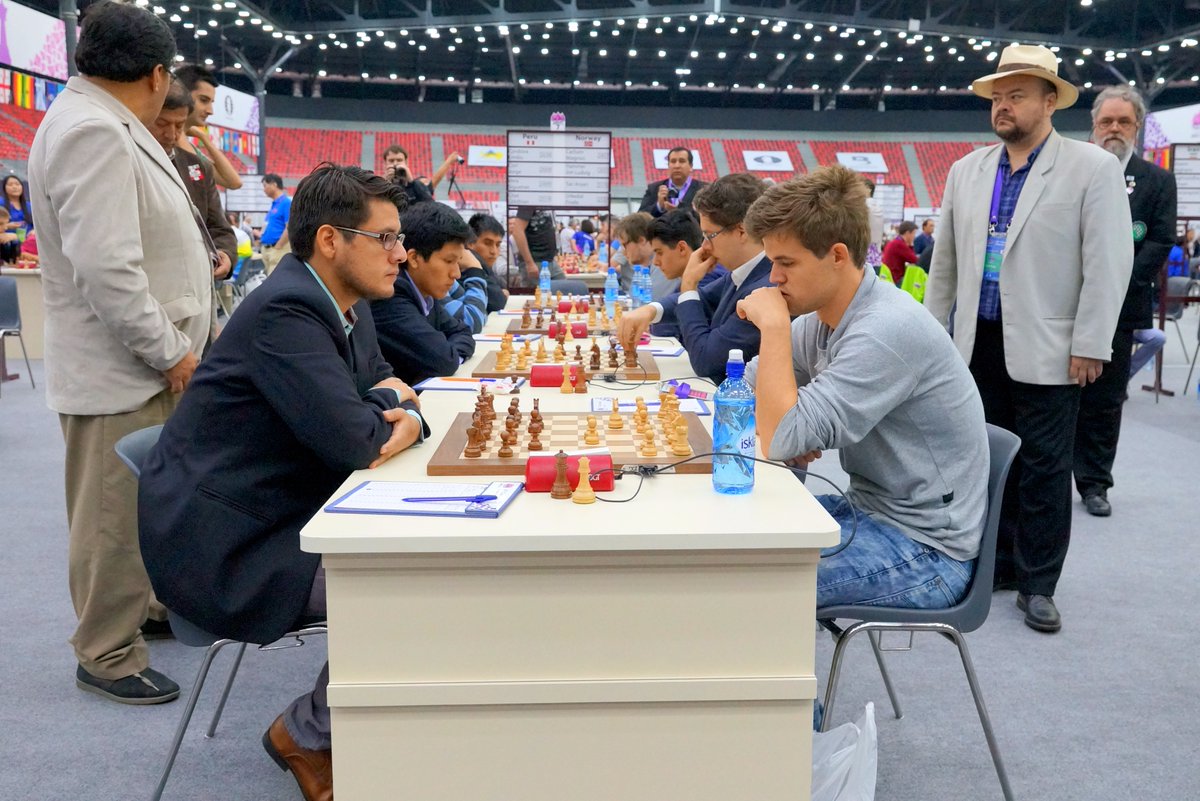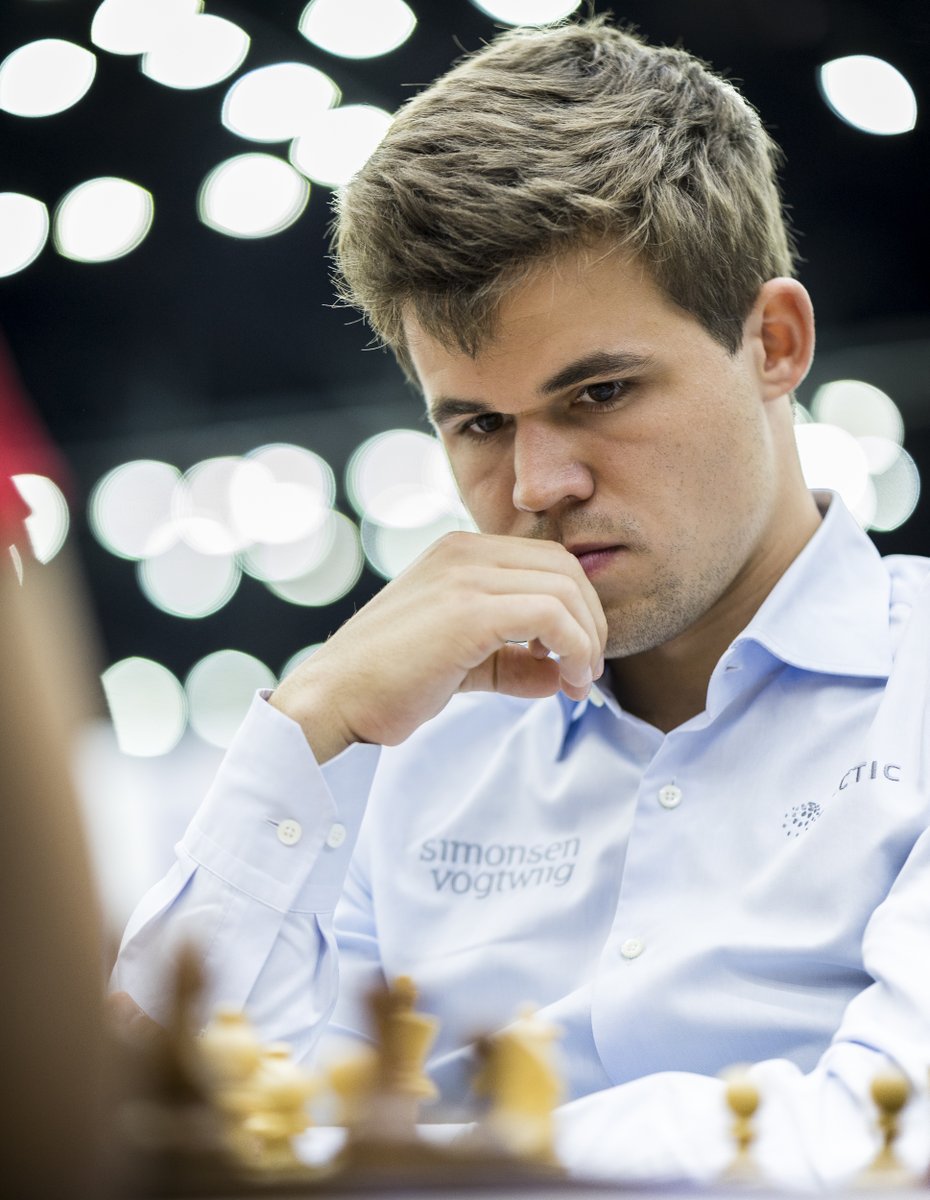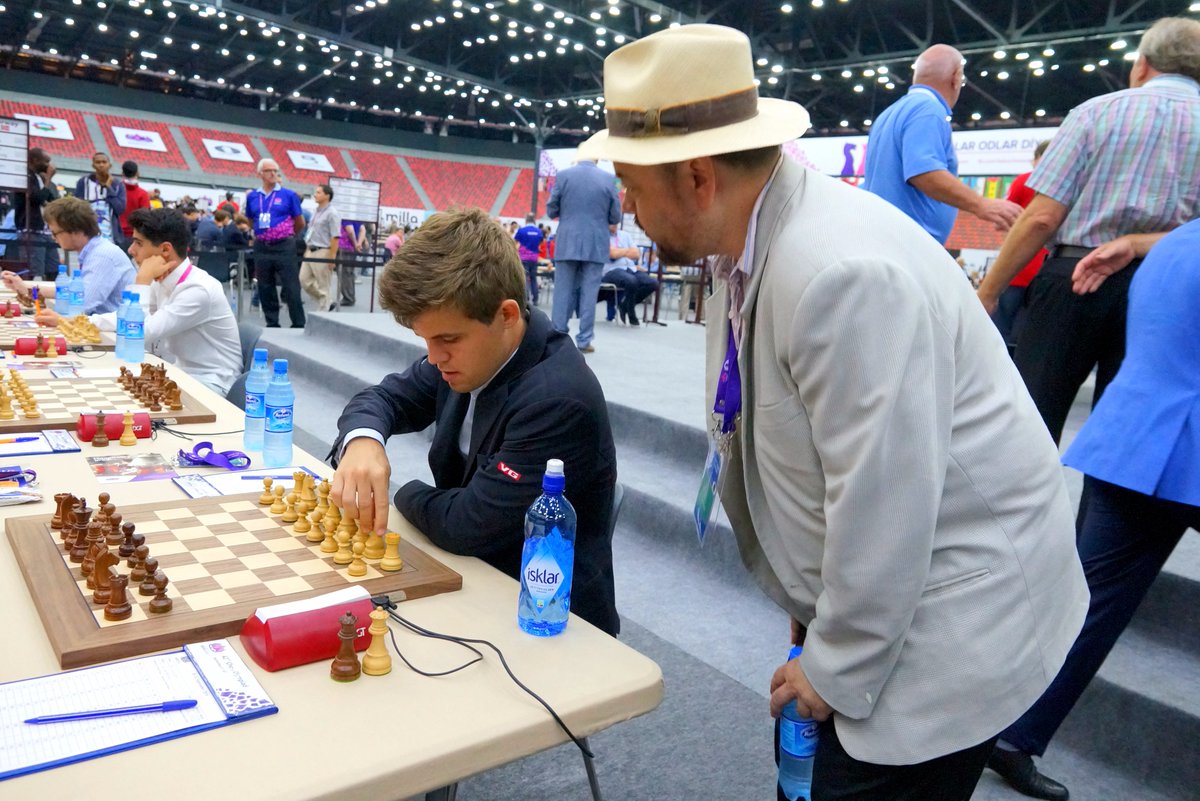For Team Norway, the recently-concluded Baku Olympiad turned out to be a beautiful tale. Spearheaded by World Champion Magnus Carlsen, the Norwegians racked up a historic 5th position, booking a World Team Championship berth for themselves in the process. The ever-colourful Jonathan Tisdall, known for his witty ways, captained this record-breaking young brigade. Post-Baku, we were fortunate enough to catch up with Jonathan, who talks about what went on behind-the-scenes, the World Teams and his love for Shogi in this intriguing interview.

Shubham Kumthekar: Hello Jonathan! It’s been a few weeks since the Baku Olympiad came to a close, where the Norwegian team racked up a historic 5th position. Being the captain of this amazing team, how good are you feeling? 🙂
Jonathan Tisdall: I’m still very pleasantly surprised! The biggest feeling now is wondering how to get ready for our unexpected prize of direct qualification for the World Team Championship.
SK: How did you guys approach the Olympiad – was there a specific strategy in place?
JT: I think that might be easy to spot – the team wanted to try playing with a minimum of rotation, to ‘top the team’ as much as possible. This was risky as Norway has had a history of fading in the final rounds.

SK: Following a slow start, your team turned things around beautifully in the second half. What, according to you, made the difference?
JT: Magnus warmed up, and the team introduced a few daily routines to strengthen togetherness. Also, they are physically fit, which is very important for Magnus.

SK: In the final round match against India, a victory for either of the teams would mean an outside chance of making a podium finish. What was Team Norway’s approach going into this big encounter?
JT: Magnus said jokingly (?) before the Olympiad that plan A was to try to win on every board. Norway just played. There were no fancy – neutralise their whites, focus all the efforts on board X – type strategies. Everyone fights and tries to make the most of the chances they get.
SK: What was Magnus’ influence like on the team?
JT: Supreme. He uses a lot of energy being the team leader, and works to inspire and gather the team, advise and relax them. I think, it is one of the reasons he is yet to over-perform in a team event – he feels immense responsibility and gives away some of the energy he needs. In Baku, this was more true than ever, but it also went better than ever. Of course, he also led by being fully focused on his games – his concentration was better than ever for a team event.
[bctt tweet=”Tisdall: Magnus uses a lot of energy being the team leader, and works to inspire and gather the team..” via=”no”]

SK: How did you go about captaining the team?
JT: I adopted a policy of being a safety valve. I smoothed out any distractions, problem-solved, but in the background, off-the-board matters. We have the world champion on the team, no other expertise is needed. His understanding of sporting psychology is also about as good as his chess.
If any conflict should arise, I could be an authority figure, but the bottom line was to trust the team and Magnus fully, and to let them get on with it. I was the water boy and a friendly ear, and stayed in constant touch.
SK: What, in your opinion, distinguishes effective team captains from the rest?
JT: I think there are many styles, depending on the team. Some need to be the trainer types, some inspire or set a mood, some are managers, some a combination of these. Knowing what your team needs, and when to stay the hell out of the way, are two skills I would highlight. Of course the job demands, say, of Ivan Sokolov for Iran, were completely different from mine. Having an active world champion changes the equations.

SK: This impressive finish at Baku has also guaranteed Norway a spot in the World Team Championship to be held next year. How huge is it for you and the boys and how do you plan to approach it?
JT: Every time I think about it, it gets bigger. It will be a historic event for Norway. Honestly, the first stage is to secure funding. Despite the chess boom, the Norwegian Federation doesn’t have a lot of funds. The first goal is to play in the World Teams without having to scrimp on the Euro Teams later in the year. Ideally, we would be able to afford some serious preparation.
SK: Let’s backtrack. How did your chess journey begin?
JT: I learnt very young at my father’s knee, and started playing in tournaments when I was about 11. Things went forward very quickly – at first.
SK: What were the key moments in your journey towards the Grandmaster title?
JT: I had the worst competitive psychology on Earth, which is why it took so long, and why I became better known as a trainer/writer. My key moments were not giving up.
SK: Which of your tournament victories/achievements stand closest to your heart?
JT: Winning the Reykjavik Open. (Ed. – 1996)
SK: Is it true that you like and play Shogi? When and how did you get acquainted with the game?
JT: I love Shogi, but don’t really play it, no time. I learnt it at my father’s knee as well, but became very interested in Shogi when I decided to use it to regain the ‘beginner’s mind’ while I was writing ‘Improve Your Chess Now’ and wanted to remember how it felt to be inexperienced as a player.

SK: Any plans of learning other variants like Xiangqi and Go? 🙂
JT: No! Go is too abstract for me, and for some reason I find Xiangqi very hard to grasp, the most elusive of the chess variants. I was just chatting to Simen Agdestein who is writing a book about these games. He fell for Go, but completely agreed with me about Xiangqi. We couldn’t understand what made it so difficult.
SK: While we are on chess variants, let’s talk about a variant within western chess, namely Chess 960. What are your views about it?
JT: I have a feeling it might become a big thing in the future. That is if no one seriously turns the computers on it as well.
[bctt tweet=”GM Tisdall on Chess960: I have a feeling it might become a big thing in the future ” username=”FollowChessApp”]
SK: With all the experience you bring to the table, what would you like to tell aspiring players aiming to make it big in today’s competitive chess environment?
JT: My experience doesn’t extend to today’s environment! But, I think the most obvious thing that doesn’t seem to be common practice these days is that endgame knowledge should be a higher educational/training priority. Time limits keep getting faster, and so you are never going to have the time needed to think properly at the end.
[bctt tweet=”GM Tisdall: Endgame knowledge should be a higher educational/training priority” username=”FollowChessApp”]
Good questions and interesting answers! Keep it up 🙂